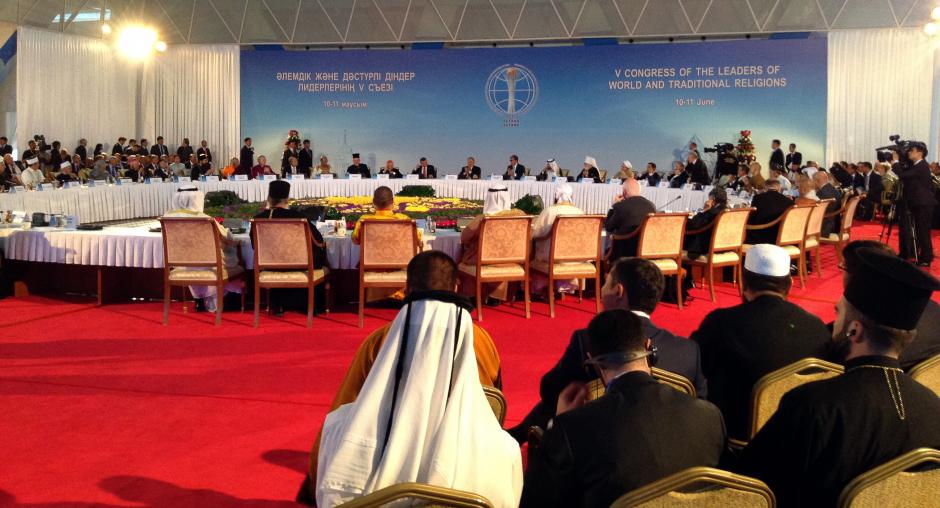OSCE Secretary General promotes inter-faith dialogue to prevent radicalization at Congress of Leaders of World and Traditional Religions in Kazakhstan

ASTANA, 11 June 2015 – OSCE Secretary General Lamberto Zannier visited Astana on 10-11 June to participate in the 5th Congress of Leaders of World and Traditional Religions and to hold bilateral meetings with Kazakhstan’s Chairman of the Senate, Kassym-Jomart Tokayev, and Foreign Minister Erlan Idrissov.
Speaking at the Congress of Leaders of World and Traditional Religions, Zannier said, “A forum like this provides an excellent occasion to rally around our shared goal of peace, development and security for all.”
Emphasizing that religion was not a root cause of violent extremism, he said that it was incorrect to blame any particular religion for acts of violence carried out in its name.
Zannier highlighted the important contribution that religious leaders can make to preventing radicalization and violent extremism. “Religious leaders can play a positive role in taking up the concerns of those most vulnerable in our societies, especially young people, who may be tempted by extremist ideologies,” he said. “Addressing their material and also spiritual needs more effectively can help strengthen their identity and sense of belonging, which could help to prevent their marginalization and possible radicalization.”
He also pointed out that media can be effective tools for promoting counter-narratives and messages of tolerance, and for connecting all those who are working to advance mutual understanding and dialogue.
Highlighting efforts by OSCE institutions in promoting tolerance and non-discrimination, Zannier pointed in particular to the work of the OSCE Office for Democratic Institutions and Human Rights, which has developed tools to promote dialogue about religious tolerance and non-discrimination. “Inter-faith dialogue has been on the OSCE agenda for many years and is an integral part of the Organization’s efforts to promote tolerance and non-discrimination.”
Political and religious dignitaries from 42 countries took part in the conference, including United Nations Secretary General Ban Ki-moon and Jordan’s King Abdullah II.
